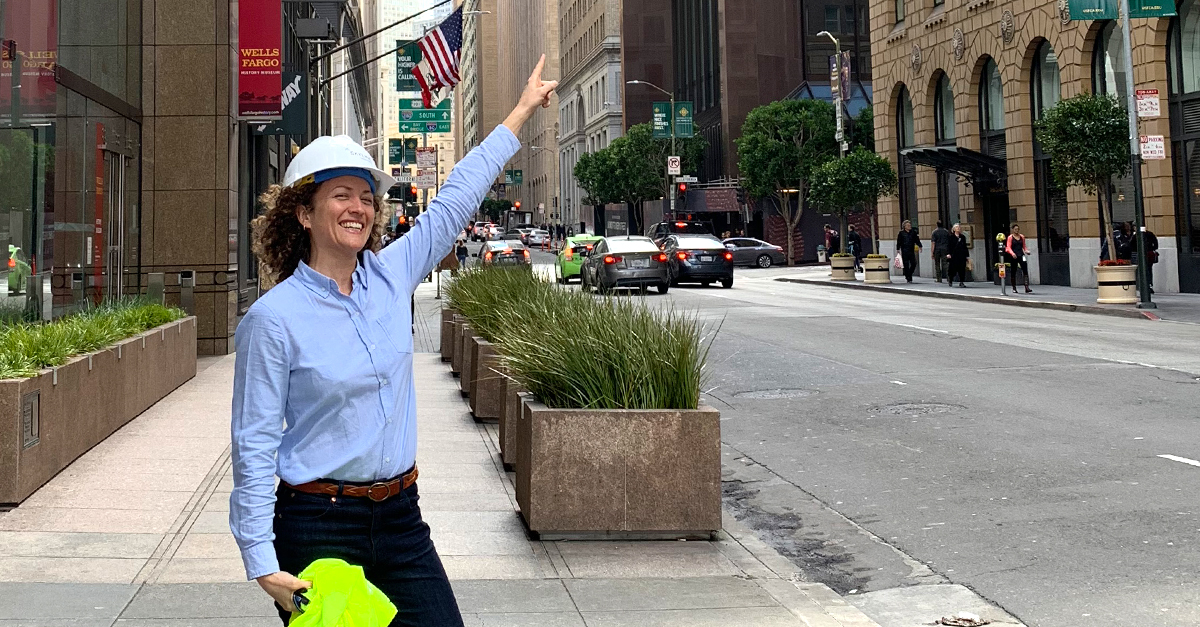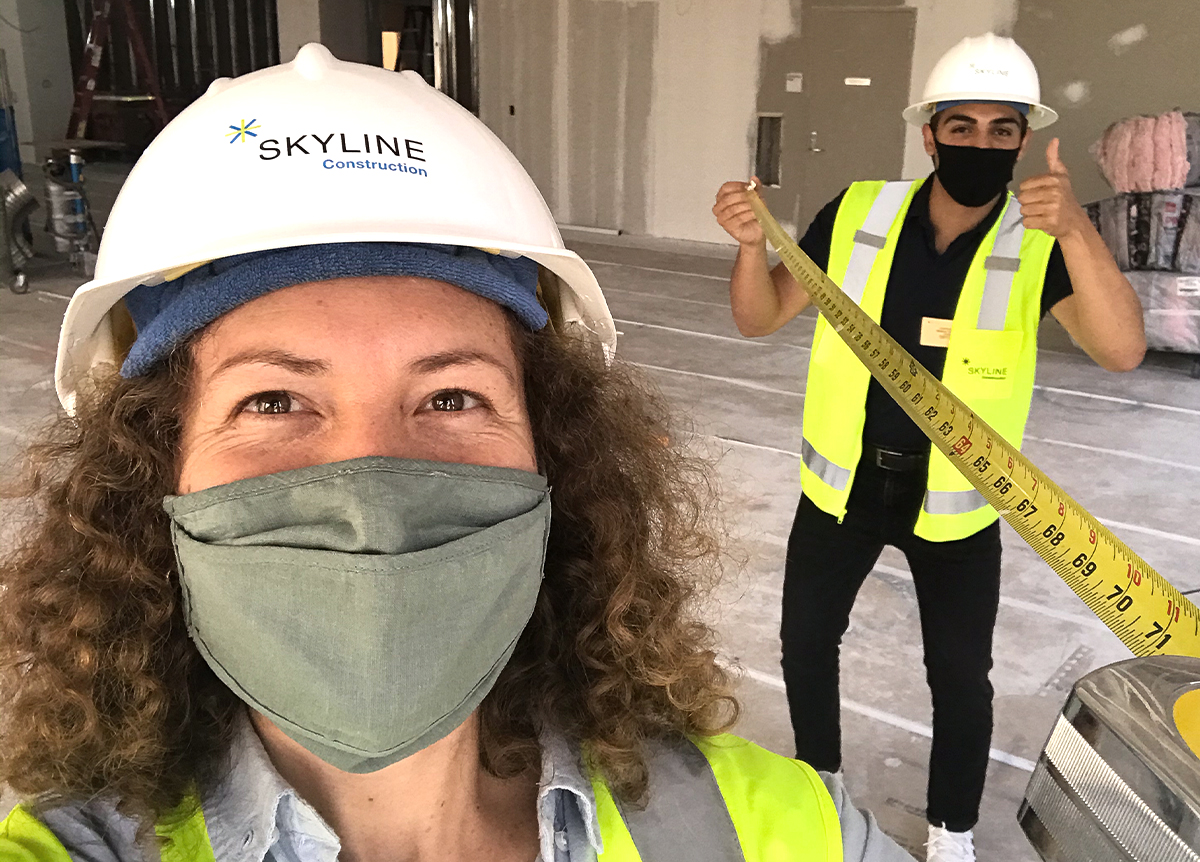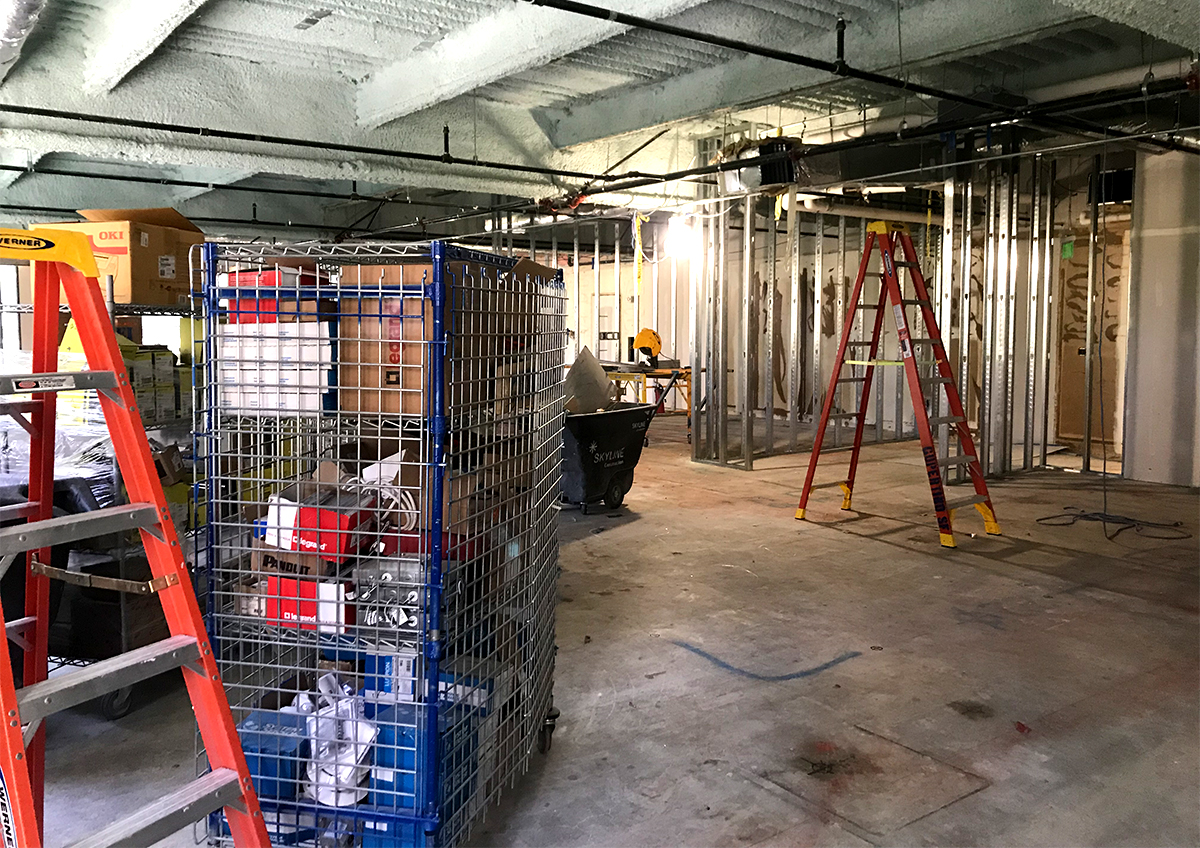Table of Contents
Not only are Fieldwire employees incredibly talented and smart, but a good majority of them came from the construction industry before joining Fieldwire. They uniquely understand the challenges faced by construction teams in the field and the office, which makes their contributions at Fieldwire even more valuable.
Get to know one of our employees from the construction success team in this Q&A interview.
Kendra Sutherland, Construction Success Manager

Professional background before joining Fieldwire
I started my career in construction in what they call a soft trade, landscaping. I spent 6 years as a bike gardener doing maintenance, and some installation. With a 6-foot long trailer, I maintained gardens within a 5-mile radius providing garden janitorial, planting, pruning, vegetation management, and irrigation services.
After receiving an associates degree in Landscape Architecture from Merritt College in Oakland, I worked for Frank and Grossman Landscape Contractors for 3.5 years as an estimator. This was very fulfilling to work with some of the most acclaimed designers and architects in the Bay Area. While immensely fulfilling, I saw how construction companies were often caught between tried and true analog ways of doing things and the pressure to modernize with technology. I couldn’t help but see how construction technology, when built on the insight and knowledge of those who worked in the industry for decades, had the potential to improve profit margins and the daily lives of skilled workers. I wanted to work somewhere that was building with both industry experience and advanced technologies, which brought me to Skyline Construction.

I found Skyline Construction was building at the highest level of quality and skill while leveraging technology wherever possible to get the job done efficiently and on time. I worked for 2 years at Skyline Construction in San Francisco as a project coordinator then engineer doing commercial Tenant Improvements (TI). Commercial TI is not for the weary. The schedules are extremely aggressive and require 14-plus teams to come together and completely transform a space within approximately 3-4 months. Handling RFIs, submittals, and procurement, I helped coordinate appliances, millwork, finishes and more. I learned an enormous amount about how to organize teams and processes on a project to meet aggressive timelines whether you used a whiteboard or AI. Finally, from being a landscaper in the field, to a project engineer in the office, I wanted to contribute to the solutions serving our industry, which led me to Fieldwire.
Tell us about your role at Fieldwire
I help users get the most out of Fieldwire. I love supporting teams in optimizing their daily processes. Understanding what matters to them, and how we can best execute their needs on Fieldwire is a total privilege. I get to learn about different trades and the processes that support them, while helping Fieldwire customers save time and do more.
Kendra’s favorite part of working at Fieldwire
Talking with customers and learning about their processes is one of my favorite parts of the job. I love to help them be successful in their jobs. Many of my customers amaze me, with the knowledge and skills they have whether it is electrical, building envelope, millwork, drywall, or whole building construction. They are often experts in their field. It is a privilege to help them now become fluent on Fieldwire.

Kendra’s favorite feature of Fieldwire
The task quick keys; I don’t know any other software that let’s you quickly categorize, prioritize, assign and label a geo-located data point while barely typing.
How do you think Fieldwire is impacting the construction industry?
I think Fieldwire is supporting the industry by helping the millions of workers manage and track the millions of details that come up on a project. I remember when I worked for Skyline, we used Procore, and while it helped me with some of the necessary tasks I had, it was too rigid for all my needs. I often found myself in spreadsheets or the notes app where it was easier for me to track all the miscellaneous tasks and details required to complete the project.
Just before leaving Skyline, I actually created a table on the notes app that was basically the tasks Kanban view. On the left it had all the rows of all the trades/subs that had open items. This allowed me to consolidate my lists for each sub, so that I could cover everything in one email or phone conversation rather than multiple. When you are trying to balance so much on a project, your brain gets overwhelmed, so small details like this can really make a difference. I hope we make room in people’s minds so they can get back to what matters most, their craft and getting the job done safely and efficiently.
